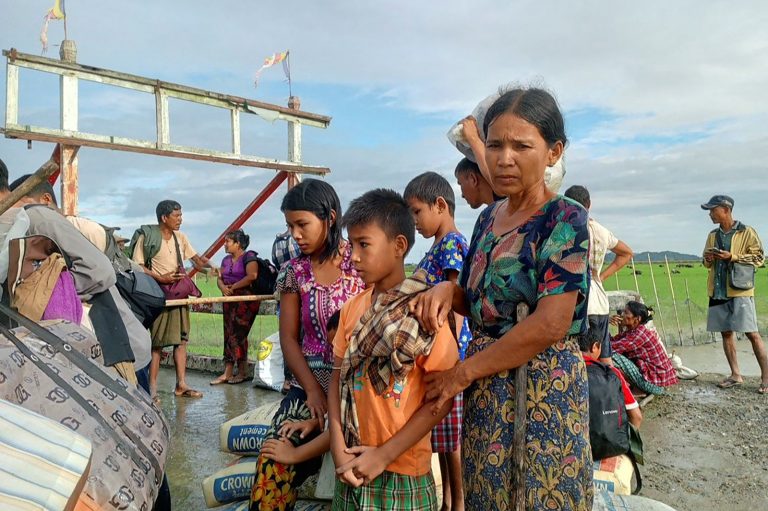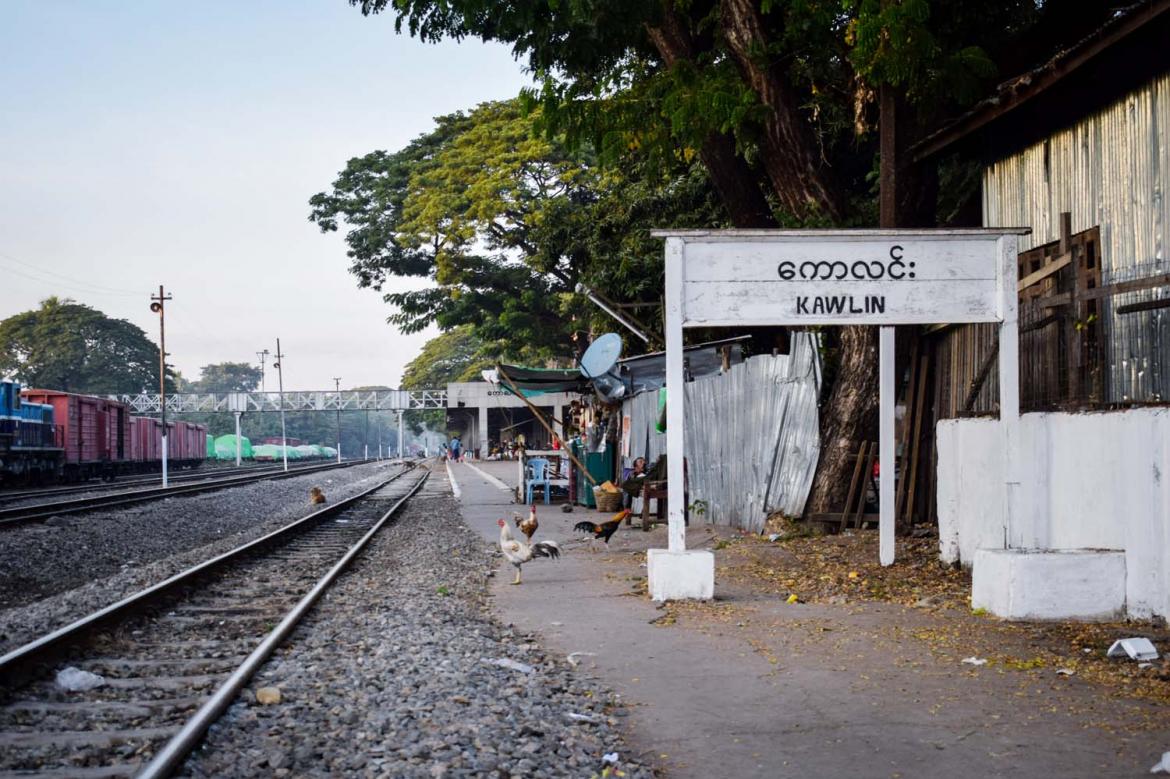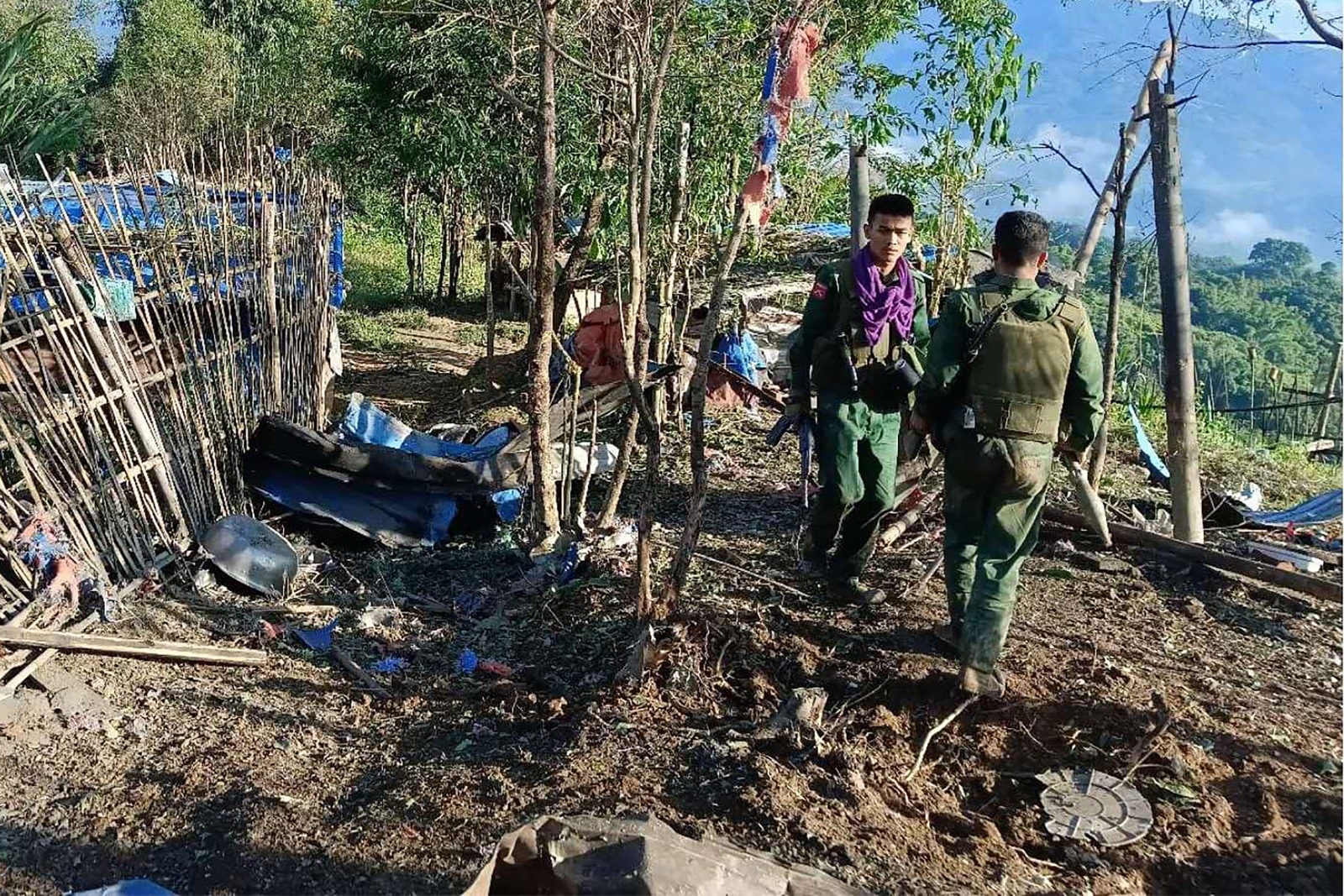By EMILY FISHBEIN | FRONTIER
MYITKYINA — On March 1, seven senior Chinese officials from Yunnan Province met two representatives from the Kachin Baptist Convention, including KBC president Reverend Hkalam Samson, in Shweli, a Yunnan border town opposite Muse in northern Shan State.
The purpose of the meeting, Reverend Samson told Frontier, was to solicit support from the KBC on three issues. These were the Chinese-backed Myitsone hydropower dam project, the Kachin Independence Army signing the Nationwide Ceasefire Agreement, and the return of internally displaced people in Kachin to their places of origin.
According to Hkalam Samson, representatives of Kachin cultural groups residing in Yunnan also attended the meeting and encouraged the KBC representatives to “consider seriously” the issues presented by the Chinese officials.
These three issues are strategic for China because of the role each of them plays in the China-Myanmar Economic Corridor.
Support more independent journalism like this. Sign up to be a Frontier member.
The CMEC, which was formally announced by China’s foreign minister Wang Yi in November 2017, is part of China’s Belt and Road Initiative. As Frontier reported in September 2018, its aim is to enhance the economic integration of Myanmar and China, through a multi-billion dollar package of investment, including into industrial zones and transport infrastructure, and through promoting the stability needed for this investment.
Earlier this year, The Irrawaddy reported that Myanmar agreed to start work on 24 key CMEC projects, at a total estimated cost of US$2 billion, and in particular to expedite nine projects, including border economic cooperation zones in Kachin and Shan states.
One of the most controversial projects under the CMEC umbrella is the Myitsone dam.
Public opposition to the $3.6 billion hydropower project has been rekindled in recent months, following increased pressure from China to restart the project, which was suspended by former President U Thein Sein in 2011.
Hkalam Samson told Frontier that the March 1 meeting made the possibility of the Myitsone project restarting “reawaken in the news.” During the meeting, he advised the Chinese officials to take up the issue with the Myanmar public more broadly, he said, because its impact extends beyond the Kachin community.
The dam, which would be built below the confluence that forms the Ayeyarwady River, 43 kilometres north of the state capital Myitkyina, would potentially impact 34 million people, or almost two-thirds of the Myanmar population, who live in the river’s basin.
The NCA, which has been signed by the government and ten ethnic armed groups, but which the Kachin Independence Army has so far refused to sign, has also “became a hot issue” again as a result of this meeting, Hkalam Samson said.
He said that during the March 1 meeting, Chinese officials emphasised the benefits that peace would bring to Kachin in terms of Chinese investment and development.
“They said that the NCA plays a key role to carry out investment and development … Their objective is to allow their investment to flow into Myanmar,” he said.
In contrast, Hkalam Samson said, the ethnic armed groups that have not yet signed the NCA, including the KIA, prioritise reaching an agreement with the Tatmadaw on the political issues that underpin the conflict and the federal rights of ethnic people as a precursor to signing the NCA.
Chinese officials also stressed that Chinese diplomacy offers Myanmar an alternative to engagement with the West, he said. He quoted them as saying that Western countries are seeking to turn public opinion in Myanmar against China.
“The Chinese government thinks that Western people are corrupting their plans,” he said. “They want us to see that the Chinese are not like Americans and Europeans. They said, ‘We want to help you’.”
Diplomatic relations between Myanmar and many Western countries have become strained over the Rohingya crisis. In the face of heavy international criticism, China has provided Myanmar protection, including at the United Nations Security Council.
Returning with dignity
The March 1 conversation did not lead to any formal agreements, but it has prompted discussion within the Kachin community, Hkalam Samson said.
The day after the meeting, he delivered a sermon in the Jinghpaw language in Muse that was widely shared on social media, in which he summarised the topics discussed in the meeting and asked his congregation, “Is it possible for us to stand up against such a superpower?”
To incentivise the return of those displaced by conflict and hasten a peace deal, Hkalam Samson said in his sermon that China has in the past offered cash payments of up to 120,000 yuan (approximately $18,000) to each displaced Kachin family willing to return to their village of origin, and has blocked humanitarian assistance to displaced communities in areas where fighting has escalated.
A four-month unilateral ceasefire between the Tatmadaw and ethnic armed groups in Kachin and northern Shan States will expire at the end of April.
On March 7, members of the Kachin Humanitarian Concern Committee, led by church leaders including Hkalam Samson, met KIA leaders at their Laiza headquarters to discuss the safe return of displaced people in Kachin.
A meeting between the KHCC and the government’s National Reconciliation and Peace Centre on the same topic is planned, he said, but a date had not yet been set.
He said the KHCC is not opposed to the return of displaced communities, as long as they can “return with dignity,” which will require support from both the Tatmadaw and the KIA.
The first organised return of displaced people in Kachin took place earlier this year, in Nam San Yang village of Waingmaw Township. Organised by the Tatmadaw, the return was surrounded by controversy.
Mines were found and removed near the village, and the KIA did not support the return. According to Hkalam Samson, the motivation behind it might have been “not very good”.
Overall, Hkalam Samson reflected, “I don’t either want to say that we [Kachin people] are scared and threatened by the Chinese, or that we agree with the Chinese on everything. I am sharing [details of the talks] with [Kachin] people so we can think about how we can address these issues.
“Now is the time for Kachin people to start thinking about what policies we can use to deal with China.”
China is Myanmar’s neighbour, he said, and there are ethnic Kachin in Yunnan, “So we need to get along well. We need to be good friends…. If we have good communication and support from them as a neighbouring country, there will be mutual benefit.”
‘We are a tiny population, against a dragon’
“Politics relates to our daily lives. The KBC does not have a problem being involved in politics. We work for the people,” Hkalam Samson said, citing their desire to advance the peace process.
Central to this approach, he said, are the theological values of justice, peace, love and respect. “Being righteous is our first priority,” he said.
Chinese diplomatic engagement with Kachin religious leaders might be interpreted as recognition of the central role these leaders play in shaping public opinion, he said.
According to one Kachin civil society leader, who asked to remain anonymous because they had recently risked being arrested, the Chinese government’s engagement with Myanmar has traditionally focused on political leaders and the Tatmadaw.
In contrast to high-level political leaders, who many Kachin view with suspicion due to decades of disenfranchisement, church leaders are highly respected within Kachin society, and have a strong influence at the community level.
The civil society leader said this role was cemented in the early 1990s, before a ceasefire in 1994 that would hold for seventeen years.
At that time, “The KIA was very strict towards Kachin,” he said. “If they saw a person wearing a longyi or speaking Burmese, that person could be [forcibly] recruited. The Kachin community felt discouraged, but the KBC and KTC [Kachin Theological College] gave them hope.”
During those years, churches “gained the trust of the people not only in terms of religion, but in terms of politics, the economy, and education.”
Churches also offered the only higher education facilities run by Kachin people, and this served as a channel through which churches recruited Kachin people for broader community work. Many graduates were assigned to work in rural areas, thus expanding the reach of the church.
Frontier interviewed several community members to understand the extent to which they looked to church leaders to shape their political opinion, as well as their views on Chinese influence in Kachin.
University student Nhkum La Nu, 20, said, “The KBC is a big organisation that can influence the Kachin public on a range of things, not only religious, but political, economic and educational. If a KBC leader has a strong belief, the people will follow them.”
Messages may be conveyed through sermons as well as prayers, he said, especially prayers relating to themes such as ethnic self-determination and peace.
According to La Nu, the Kachin are not closed to the idea of engaging with the Chinese. Part of this may stem from a feeling that Chinese development into Kachin is inevitable.
“For me, it is kind of impossible [for Kachin people] to be against China. We are a tiny population, against a dragon,” he said. “We have to change our way of thinking about China and not just [see the country] as an enemy.”
Mung Htoi Awng, 19, who works at the Shatapru Kachin Baptist Church Learning Center Coffee Shop, said, “In Kachin State, a lot of people believe in God. We always listen to KBC leaders and their words.”
Asked whether this reverence extends to politics, he said, “It is important that our leaders talk about politics. If they don’t, who will do it for us?”







